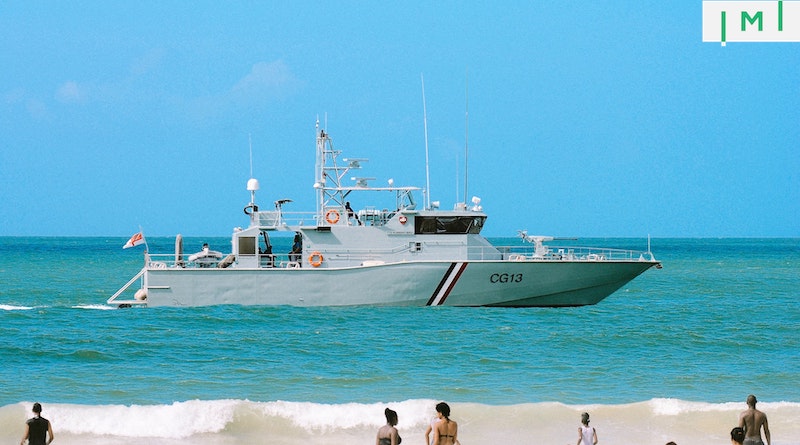To Keep Its CIPs and Economies Alive, The Caribbean Must be Pragmatic

Keyword: Leeward
With Kenneth Green
A native of the Caribbean explores what role citizenship by investment has to play in shaping the region’s economic future.
One foreign-based peer, in a moment of absolute clarity, once declared to me that if the Caribbean citizenship by investment programs (CIPs) were threatened, he would merely move shop. His words were quite simple:
“These countries are so small. The show will just move on. You are not that important.”
It is with similar clarity that Caribbean politicians rightfully view the dangers and risks that come with challenging the relationships that underpin the very survival of our economies and their governments.
Viewing Barbados Prime Minister Mottley’s frank and candid submission to the US House of Representatives Committee on Financial Services, one comment from a Congressman on the Committee said it all. The Congressman said that the issues that the US had with the Caribbean on banking and AML weren’t based on anything the Caribbean does but, rather, on what it might do.
This is akin to a person of color being stopped and frisked not because of anything they have done, but because they have been profiled. This is our SIDS [ed.: Small Island Developing States] reality: It doesn’t matter how well the ship is being run; it simply matters who controls the waters in which it sails and what they do when you sail through. In fact, the same risk profiling issues plaguing the Caribbean also affect minority communities in the United States with regard to banking. This crystallizes the issue even more clearly.
Within that context, our relationship with the United States, Europe, the UK, and Canada is critical even when the optics and realities suggest it is mostly not reciprocal. They don’t need us, but we surely need them.
What does that suggest for CBI? It means that we continue to run the most robust due diligence platforms, that we toe the line when it comes to sanctions and FinCEN alerts, and that we lobby and communicate on matters of concern both to the CBI industry and, more importantly, to our wider financial sectors.
The continued relationship with China is critical to the Caribbean for development and infrastructure financing, and to develop our nascent trade platforms. The Caribbean continues to nurture bilateral relations with the Middle East, and much of the Global South, but the reality is that our fates are shaped by the Global North.
Indeed, all other world powers explicitly recognize the Monroe Doctrine as a real guide to the American sphere of influence. We in the Caribbean recognize it not just when we have these congressional hearings. We recognize it when bad weather systems are upon us; we recognize it when we chart our plans for further education; we recognize it when we look at our shipping channels for commodities; and we recognize it when we examine our tourism.
A nearly-one-trillion dollar trade deficit with the United States is the closest relevance we have, and those deficits will continue to grow whatever the flavor of our economies.
The truth is that we matter to ourselves. This is why, when the dust (or the rubble) clears, the Caribbean is usually left with those of us committed to this region and these islands. Everyone else runs away or treats our countries as an unnecessary risk.
This also puts the onus on protecting the CBI for our economies because even those who mean well can put us in harm’s way by underestimating the value of pragmatism when dealing with this industry.
The idea that some magical switch can be pressed to make our economies more palatable is also a myth that is part of the political dialogue. In the parlance of the street, “It is what it is “.
Whenever discussions start about the viability of Caribbean economies, it starts with inward investment. Even the CBI sector needs investors to come through our financial systems. We have no agenda or concerted plan to decouple from the current financial systems. This puts us in the position of having to have uncomfortable discussions that challenge our sovereignty because we are effectively being regulated and ‘governed’ by systems we in the Caribbean compete with.
Except now, it is clear that we have to make a case for ourselves devoid of the wide-eyed innocence that we can “fix” this simply by dropping CBI or any other industry that has perceived risk or, conversely, by going for broke and pretending that the Caribbean is able to buck the trend and do as we like.
In fact, the biggest risk is forgetting what is actually making our economies tick and why. Our governments and CBI programs have lasted this long because of cold pragmatism, conformity to best practices, and a realization that countries are far more important than agents and firms who ultimately are transient, no matter how important they may seem to be at any moment in time.
In these times, we have to nurture our traditional relationships. Much of our current diaspora populations live in the conventional “West”. We also have to embrace new friends. In Dominica, a Chinese contractor is to build our long-awaited new international airport, and China is our fastest growing bilateral partner, as it is in many of the other Caribbean islands and countries across Latin America.
Our development agenda can be diverted and shaped by external forces, but it has to be set by the knowledge that our relevance is always in flux and our islands constantly have to survive a strange combination of patronage and punishment from those who matter.
That is our ongoing reality.
Kenneth Green is an investment migration specialist and a Managing Partner at Advance Global Partners



